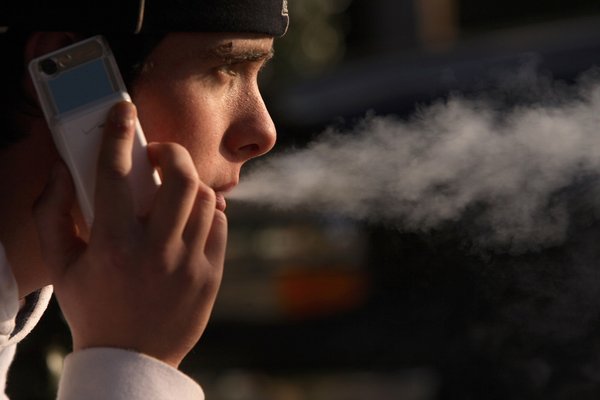Flavors lure 42% of young smokers
By Wendy Koch , USA TODAY
Two of every five youth smokers use cigarettes or look-alike cigars that are flavored, says a U.S. government report Tuesday that’s intensifying the call for federal control of all tobacco products including electronic cigarettes.
Of middle-school and high-school students who currently smoke, 42.4% reported using menthol cigarettes or flavored little cigars, which are often cheaper, says a survey by researchers at the U.S. Centers for Disease Control and Prevention. Such usage was higher among older teens than tweens.
“Flavors can mask the harshness and taste of tobacco, making flavored-tobacco products appealing to youth,” says the 2011 National Youth Tobacco Survey, adding they can cause kids to develop a lifelong tobacco habit. The survey notes smoking remains the nation’s single largest preventable cause of disease and premature death.
Flavored or not, “little cigars contain the same toxic and cancer-causing ingredients found in cigarettes and are not a safe alternative to cigarettes,” Tim McAfee, who directs CDC’s Office on Smoking and Health, said in releasing the results. “Many flavored little cigars appear virtually indistinguishable from cigarettes with similar sizes, shapes, filters and packaging.”
In 2009, the U.S. Food and Drug Administration banned candy and fruit-flavored cigarettes but exempted menthol ones. In July, the FDA reported that menthol cigarettes cause more youth to begin smoking, boost dependence on tobacco and reduce success in quitting smoking, especially among African Americans.
So sweet-flavored little cigars, not covered by the federal ban, have gained popularity not only among U.S. kids but also among adults. A recent government survey found that more than two-fifths of current adult cigar smokers used flavored cigars during 2009 and 2010.
“The FDA should act promptly to assert regulatory authority over all tobacco products, including cigars,” says Matt Myers, president of the Campaign for Tobacco-Free Kids, arguing tobacco companies are circumventing the ban on sweet-flavored cigarettes by marketing similarly flavored look-alike cigars. “The FDA must close this loophole.”
The study also shows that among youth cigar smokers, almost 60% of those who smoke flavored little cigars are not thinking about quitting tobacco use, compared with just over 49% among all other cigar smokers. The CDC says sales of little cigars, taxed at a lower rate than cigarettes, jumped 240% from 1997 to 2007, and flavored brands account for nearly 80% of market share.
The youth survey, published in the Journal of Adolescent Health,found that slightly more than a third, or 35.4%, of current youth cigarette smokers said they used flavored cigarettes, which could include menthol ones or flavored little cigars that students mistook for cigarettes. The share went up to 42.4% when current cigar users were included.
Myers says some state and local governments — Maine, New York City and Providence — are moving to ban the sale of flavored tobacco products, including little cigars. More are also banning the sale to minors of electronic or e-cigarettes, which don’t burn tobacco but contain a nicotine solution that is emitted as vapor when a user inhales. This nicotine is derived from tobacco leaf.
A CDC-conducted survey last month found that youth usage of e-cigarettes, also not subject to FDA regulation, has recently doubled. Last year, 10% of high school students said they tried e-cigarettes, up from 4.7% in 2011. A doubling also occurred among U.S. middle school students saying they’ve experimented with e-cigarettes.
While some of the largest e-cigarette manufacturers, including R.J. Reynolds and Philip Morris’ parent company Altria, don’t make sweet-flavored e-cigarettes, many other companies do. E-cigarettes — some marketed as “juice pens” — come in chocolate, Fuji apple, Bombay mango, vanilla, cherry crush, and peach schapps.
Blu e-Cigs, a brand that Lorillard bought last year, “are not attractive to kids” despite their multiple flavors, says James Healy, the company’s founder. Myers and other tobacco critics disagree, citing data showing how many kids are lured by flavors.
The FDA, which said three years ago that it would expand its authority to regulate other tobacco products, is expected soon to take the first steps in that direction.
http://www.freep.com/article/20131023/FEATURES01/310230060/Flavors-lure-42-of-young-smokers


